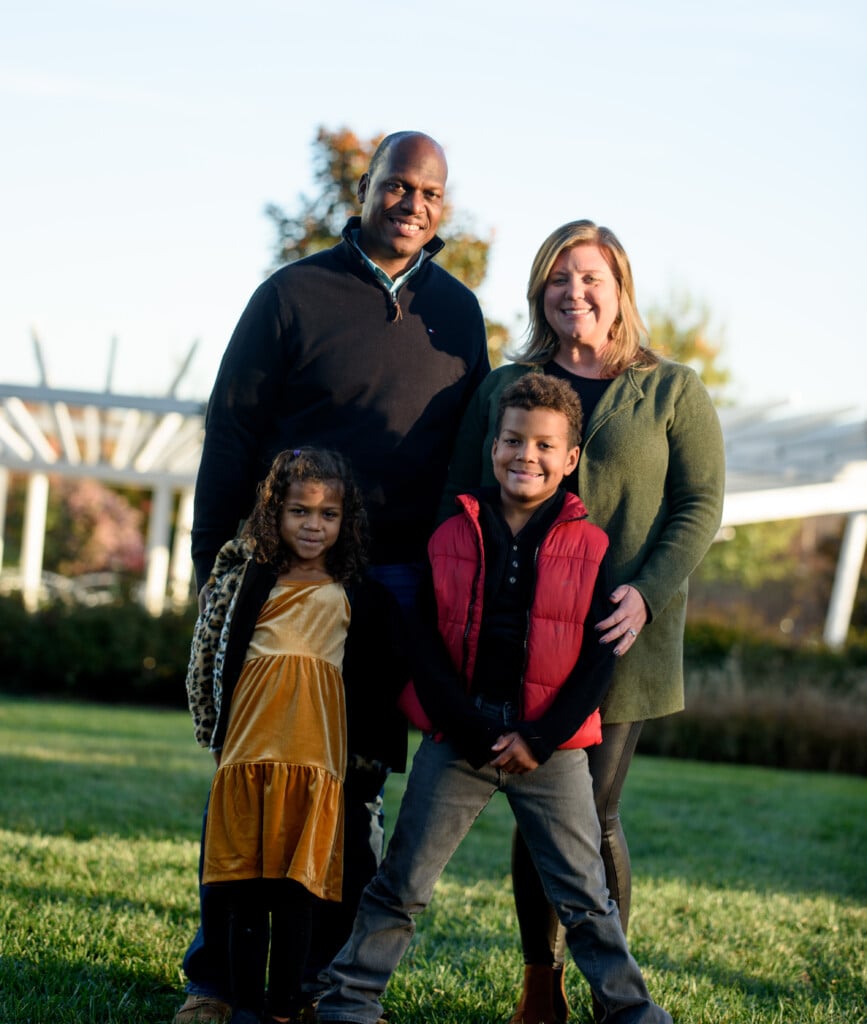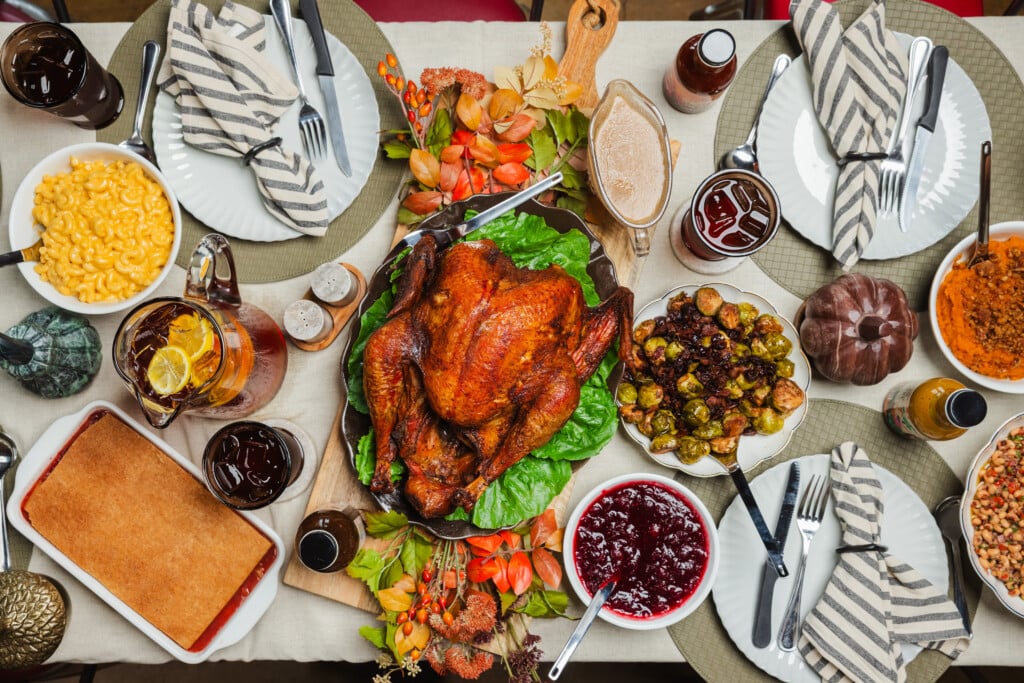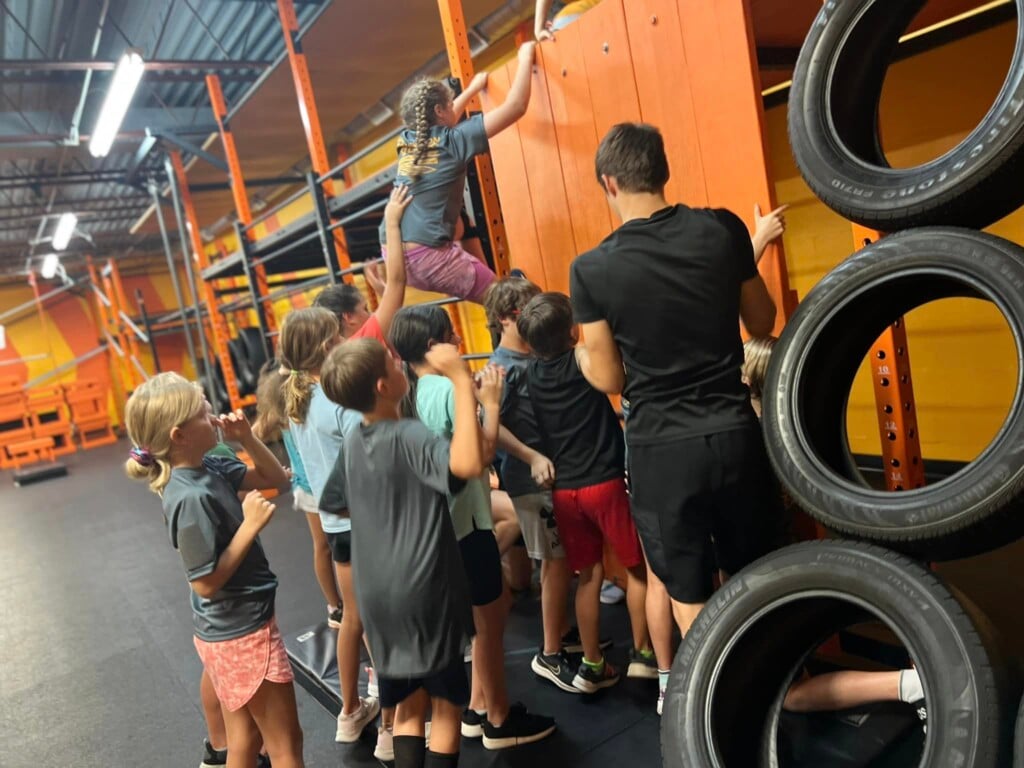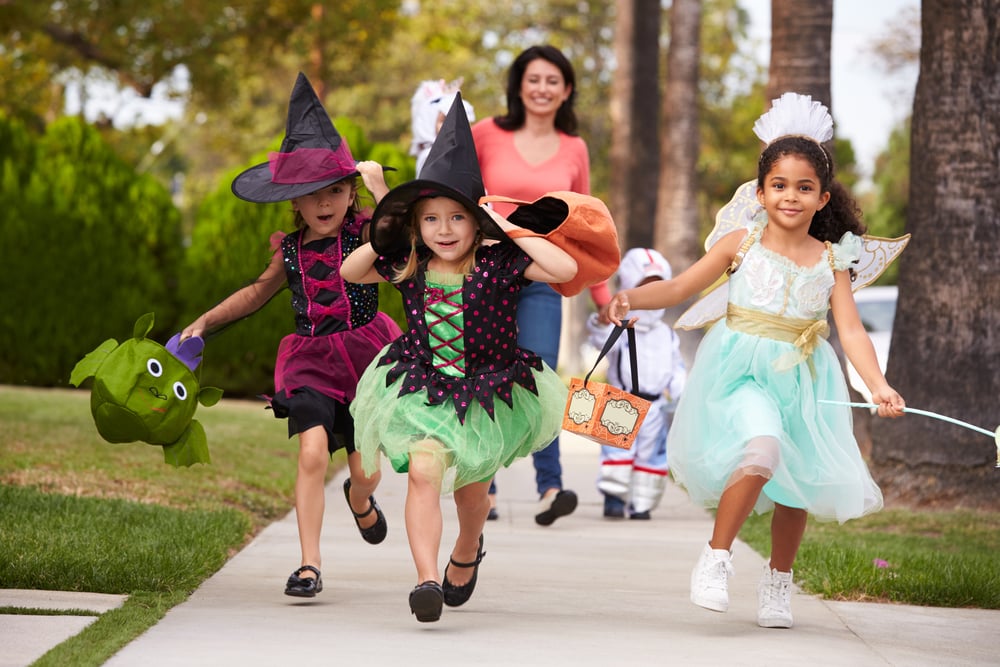PARENT TO KNOW: Justin Perry

Justin Perry is a therapist and founder of Perry Counseling Healing and Recovery PLLC. He has over 15 years of experience working with children, adolescents, and adults who have experienced trauma, and/or are managing mental health and substance use disorders.
He has provided trauma-informed training for teachers, administrators, and support staff at various Charlotte Mecklenburg Schools, and has run groups for students who need extra support with communication, conflict resolution, and healthy relationship skills.
The proud Charlottean native is also a social justice warrior and has invested his time and voice to advocate for equitable education, housing, mental health, and underserved communities. Here, the dad of two talks the critical importance of valuing play over perfection, how to know when your child might need mental health support, and the challenges facing modern day dads.
Tell us about your family. How many children do you have and what are their ages?
I’ve been married to my wife for 14 years and we have 2 children. My son is 10 and my daughter is 7.
From your professional perspective, what is something you wished more parents knew?
I wish more parents understood and respected the value of play and socialization for children. There is such a push on producing test-beating, academically rigorous robots from ages 2 and up that we de-emphasize play and developing socio-emotional skills such as coping with stress, managing emotions, socializing with others, and conflict resolution.
These items are often treated as “extras” and called “soft skills” when they are fundamental skills that will be needed in whatever career kids have, let alone if they are to have future healthy relationships. I remember when I went on tours of schools around the community before my son started school, I remember routinely being told “kindergarten isn’t like it was when you were in school. It’s more like first grade. They don’t play. They really learn.”
Here’s the thing – young children, especially, do most of their learning through play. By reducing their play, we are shortchanging them mentally, emotionally, spiritually, and yes, educationally. This produces exactly what we see today—young people experiencing rampant challenges with self-destruction and destruction of each other.
Some people reading this will assume my framing is because of an inability to hack it, in myself or my children, or a fear of competition. However, these things couldn’t be further from the truth. Our kids can be competitive and successful without fully buying into the many rat races that we create all the way down to what is the supposed “best” childcare center, school, sports league, etc. Ultimately, I wish parents knew that kids can have great lives without buying into the scarcity myth and a myopic understanding of what “good” or “success” means.
In the long run, you will value your child being mentally healthy versus focusing solely on being “the best”. A focus on perfection and the pressure to perform can often lead to suicidal ideation or self-medicating through substances, self-harm, disordered eating practices, and other potentially lethal means. I’ve worked to support enough young perfectionists and their parents to stand by this. As I say to them, “Perfection is a rarely attainable, permanently unsustainable approach to life.” The only people who perfectionism serves are therapists like myself. It’s job security for my profession.
How can parents tell the difference between adolescent angst/rebellion, and what might be indicators of the need for mental health support?
Frankly, it can be quite difficult to tell the difference between angst/rebellion and legitimate mental health concerns. That said, what we look at is differences in functioning. Differences in school performance that stand out, differences in social interactions, significant differences in shifts in sleeping, weight, and eating patterns are solid starting points.
Furthermore, if you notice loss of interest in or quitting things that they’ve long enjoyed, deeper withdrawing than usual and unexpected pulling back from/cancelling with close friends, or a sudden drastic overhaul of a friend group, it is worthy of exploration.
Lastly, any combination of constant running or obsessive thoughts, pressured speech, as well as physical signs such as cuts, bruises, burns, picked scabs, and/or picked out hair/eyebrows without being able to give a clear explanation warrants further evaluation.
You can always seek an assessment. Having someone assessed is not an automatic commitment to counseling or treatment. So, let’s normalize getting a mental health check up in the same way we have well-visit checkups for physical health. You don’t have to wait for your car to smoke to take it to the mechanic. Why must we wait until a child expresses suicidal ideation to seek counseling?
Hardest part about being a parent?
The hardest part of being a parent for me has been finding a balance for prioritizing myself as needed.
During the first year of my son’s life, I went through a stretch of anxiety. I loved being a father and yet I remember being hit with the gravity of it at times. I thought it was work-related. But after some introspection, I came to realize I was truly anxious about the weight of being responsible for such a young, innocent, human, and the woman who I loved who was responsible for giving him life. Though often unspoken and unacknowledged, this type of angst is more common for many dads than we acknowledge.
To complicate matters, I did not feel that I had a right to share this with my wife, who did the work of carrying and delivering our child and was managing the realities of being a new mother, breastfeeding, returning to work, and all the various things that come with that.
We are in a transitional spot with parenting empathy. We are just becoming more openly aware of and open about things such as postpartum depression/anxiety/psychosis, and the invisible mental load many mothers carry managing family logistics. And yet still, the expectations for moms are often ridiculous. That said, as we are early in recognizing some of these challenges, more often associated with moms, it seems wrong to acknowledge there are also challenges many fathers carry, despite the perception that we are just living mindlessly and free of stress.
The most challenging part of being a parent and a modern day dad, is effectively balancing the internal desire to be more engaged with our children and household chores than fathers have ever been in history, while still feeling financial pressures/responsibility. And all the while, appearing unfazed, because that’s what’s expected and reinforced as a man. Separately, while mothers often have a built-in infrastructure of fellow mothers with whom they regularly communicate, the average man does not, as men displaying vulnerability has historically been punished by both men and even women, including one’s spouse. I write this, knowing I’m breaking a code, while also knowing that for some, it will be easily dismissed as whining.
Favorite part about being a parent?
Seeing my children excel at displaying the best of their personalities. Watching and listening to my children laugh with each other – it’s my favorite sound. Watching my son compete with full intention in sports, balancing both a fierce desire to excel with empathetic leadership. Watching my daughter utilize her creativity in playing dress up, in doing her self-choreographed dances and improv performances with humor beyond her years.
Lastly, I enjoy watching them both advocate for others whom they see as vulnerable.
Biggest parenting fail to date?
Not effectively taking care the best care of myself in the first stretch of two-child parenthood.
The challenge of one child is significant. The adjustment of two young children can hit differently. At that time, I focused on parenting, work, community work, attempts at maintaining a solid marriage, the health of an aging pet, but left nothing or little space for taking care of me. Things like working out and other forms of self-care were things I knew were important but did not execute.
Best parenting advice you ever received?
Our nurse at Novant told us after the birth of our first born, while she was coaching me on effective wiping and diaper changing, “While it’s true that you’ve never had kids before, remember he’s also never had parents before.” That perspective made space for reasonable expectations. Parenthood is 2/3 expectations and 1/3 execution.
Marriage advice for new parents?
There are three parts to any healthy relationship: Yours/Mine/Ours.
While you have a responsibility to work to effectively co-parent and healthily interact with your children, part of healthy parenting for married couples is modeling what healthy marriage looks like. That involves not centering your relationship solely on your children. They need to know that in the same way they have friends that they have fun with separate from you, that you have lives and a social life that exists separate from them.
Furthermore, do not fall into the myth that marriage and children means the end of your sex life and becoming complacent. While things may fluctuate, if parties were sexual beings before children, one or both will remain so afterwards. The goal is to be sure that if you are in a monogamous marriage, you find ways to re-engage those parts of yourselves with each other. Commit to dates, excitement, joy, connection, and if possible, find a core group of friends who are willing to support each other by watching each other’s kids to make true dates and experiences a reality. Mutually utilize and support each other.
Choose interdependence over independence. With both, you stand on your own two feet. But with interdependence, you stand longer and stronger, because you’ve got the support of the other when you need it.
Phase you feared your child would never grow out of?
My daughter used to stay awake late and walk back to my wife and my bedroom, leading me to have to take multiple runs at keeping her in her bed. Thank God it has not continued (knock on wood).
Favorite way to spend an unscheduled day with your kids in Charlotte?
I like to share a meal with my kids, as well as snow cones at Pelicans for dessert. Separately, going to a neighborhood park and watching them play with other kids. It’s a bonus, if other parents are there, so that we can both enjoy watching them play, while sharing adult interaction.
Favorite Charlotte restaurant?
Freshwater’s in fourth ward and Intermezzo in Plaza Midwood.
Favorite place to shop in Charlotte?
Receiving gifts is my lowest love language. However, my favorite place to shop is Moxie Mercantile on occasions for my wife; as I am able to buy ear rings that look great on her, while being made by artists with unique stories.
What local amenity/retailer/service could you not live without?
Eastway Recreation Center; I am able to go here to workout while it also has many benefits for my children as well.









